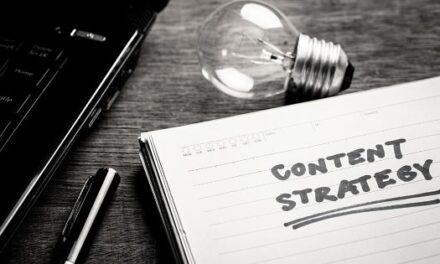Over the past year many people have started working from home in response to the COVID health crisis. Many of those workers never worked from home before and had to quickly adapt to being at-home teachers while balancing a full-time workload without appropriate resources, skills or training.

While some have struggled, many others adapted very well to working from home and many employers have since considered making the permanent or near-permanent transition to the arrangement as productivity has climbed for many of their staff. With this possibility, now is the time to ensure you’re ready for the future.
Over the past 20 years, most of my own roles have been in some capacity “working from home.” From the times I owned my own business & conducted most of it from a home office, worked in digital marketing consulting where most of my work was also from anywhere I chose, or like others now, where I’m commuting virtually to the office via Zoom and Google Hangouts, I have spent the vast majority of my adult life doing what others are now acclimating to as part of their regular routine. As someone who has adjusted extremely well to work from home (and looks forward to it continuing), below are some simple and timeless productivity tips for you to help ease the transition if it’s been a rough one.
Plan the Day Beforehand
Far too often we are in the habit of strolling into the office at [9:03], coffee in hand, to sit down and power up our computers, chat with our desk neighbor, ask about the weekend, grab another sip, fire up our to do list and start to consider what we’re doing for the day. Whether you’re extremely hard-working or taking it “slightly easy” at home, better advance planning will give you a definite edge.
Now that you are working from home, consider planning your day and your to-do list the night before. Not only will you be more organized and ready to start the workday in style but you will feel much less stressed about that morning stand up knowing that you’ve already thought about what’s coming for your day. Last minute scrambling and making up things that we aren’t sure about is more stressful, more time-consuming and, ultimately, less productive than getting the work done before the day even starts. Consider using a planning tool like Trello to keep you on track even during busy weeks, long weekends and anytime your concentration for “what am I meant to be doing” starts to lag.
Set & Stick to a Schedule
As important as planning is scheduling. Not all of us will continue to work [8:30] until [5:00] Monday through Friday and that’s to be expected. My day often starts around 6 am, pauses at 11 am, resumes at 1 pm and finishes at [4:30] or 5 pm. It works better for my me to have some time around lunch to get things done outside of home, take a lunch or even a lunch nap and come back fully refreshed without that afternoon slump.
Maybe you have a newborn so you’re up all night. Maybe you’re not a morning person and prefer to start at 10 am. As long as your schedule and arrangement are suitable to your workplace and approved by your manager, working on your own time is much better for both productivity and mental health than running an expected “9 to 5.”
However, once you set a schedule, try to stick to it as much as possible. For many people, lost productivity comes in saying one thing and doing another. “I’ll write that blog post at [9:30]” and not starting it until 11. And what happens in the 90 minutes in the middle? Facebook, news, email check, Slack chats, a load of laundry, a barking dog … life happens and saps 20% of your day away in the blink of an eye.
The other benefit of sticking to a schedule is it will save you time. If you plan to work 8-12, 1-5 and you end up losing 90 minutes in the middle of the day you may feel compelled to work late – ending your day at [6:30] or even 7 pm. Without the time to relax, refresh and get things done, tomorrow could turn out exactly the same and suddenly you are fighting against what feels like 10 – 12 hour days and not enjoying working from home at all.
Dealing with Daily Distractions
By now, we all know what our daily distractions are. Kids, social media, housework, partners, neighbours, deliveries, television meant to be background noise, “breaks” and more. They break our concentration and give us less time to get our most important tasks done.
How do you cope with these distractions? Have multiple plans of attack for each distraction.
You may be the only one home alone with the kids, but do they tend to demand attention directly after lunch, early in the morning? Some hours will be worse than others consistently throughout your week. Find these times, plan for them. Do they simply see you and want attention? Schedule it in. You’ll be more productive if you can set aside 1 hour in the afternoon for the kids but start at a different time. Control what you can control – yourself. Allow for the interruptions you can’t avoid.
Maybe you’re stuck watching social media all day to figure out what the latest updates, news announcements, etc. will be for the day. Time to find that one friend that’s as dialled-in as you are and tell them you need to work but “let me know” about important changes. And yes, it’s hard to break free from that argument on Facebook but when is the last time you left one feeling like you’d truly impacted your day positively?
You know your distractions better than anyone, but you also know why you haven’t stopped them. Improving your productivity requires your will to get the work done be higher than the will to entertain those distractions. Ultimately, you’re going to need to find ways to cope with breaks in concentration or schedule to be successful at home.
Be Productive When You Are
A fellow businessowner once told me the secret to his success was that he worked hard when he felt like working and didn’t work at all when he felt completely unproductive. This runs somewhat counter to the “set a schedule and rid of yourself of distractions” advice above, but that’s the point. Sometimes those ideas won’t work for you. How do you handle it when you just can’t handle it?
Work when you’re most productive and work hard. If you get more done between 6 and 9 am than you do once everyone wakes up, you can’t have a single break or lapse of concentration during those hours. Dedicate yourself fully to your most productive hours and allow yourself some slips when they happen throughout the rest of the day. Absolute concentration at your most valuable and productive times will enable you to get through more work than if you had a steady but lower motivation and work level the whole day.
Use Extra Time Wisely
The average office worker has a one-hour daily commute. It takes up over 20 hours of our time per month. Maybe you made a call or two but many of us were sleeping on the train, driving/riding to work or otherwise wasting the time. Now that time is yours again. How you use your own personal time will greatly affect your work productivity time. It’s easier to stay on schedule when you’ve done all your other work or you know when it will get done.
COVID has given us an opportunity to reinvent part of the workforce. Whether or not these changes stay will greatly depend on how successfully business can keep running and how much productivity grows or declines during this time.





















